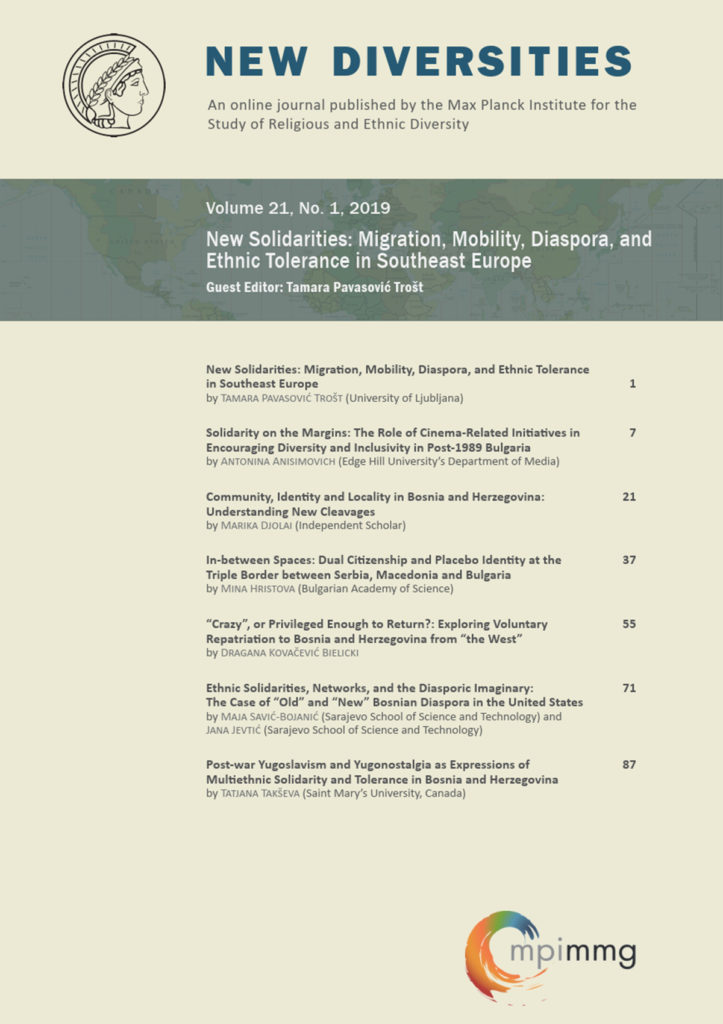Ethnic Solidarities, Networks, and the Diasporic Imaginary: The Case of “Old” and “New” Bosnian Diaspora in the United States
by Maja Savić-Bojanić and Jana Jevtić (both Sarajevo School of Science and Technology)
To cite this article: Savić-Bojanić, M., & Jevtić, J. (2019). Ethnic Solidarities, Networks, and the Diasporic Imaginary: The Case of “Old” and “New” Bosnian Diaspora in the United States. New Diversities, 21(1), 71–85. https://doi.org/10.58002/q51g-g340
This ethnographic study examines ethnic solidarities, networks and the diasporic imaginary of Bosnians who settled in the United States up until the early 2000s. While the elders cling on to the “old” pre-existing narratives of belonging as shaped by one’s ethno-religious identity, we argue that many diasporic youths have a “new” Americanized perspective on what it means to be Bosnian abroad. They not only question the symbolic value of ethnicity, but also the importance of country-of-origin background, on the one hand, and ties with their “co-ethnics”, on the other. Drawing from ethnographic fieldwork and twenty lived histories of Bosniak diaspora during their visit to Banja Luka, Tuzla and Sarajevo, this paper pushes forward a discussion on ethnic solidarities that goes beyond the considerations of Dayton-imposed identity formation, questioning how post-war affiliations are informed by ethnic attitudes in young adults living abroad. It contributes to existing discussions on transnational spaces, connections and practices, by showing that both time and space of one’s settlement greatly shape the identities of what we define as the “old” and the “new” Bosnian diaspora.
Keywords: ethnic solidarities, diasporic imaginary, Bosnians, Bosnian diaspora, networks, generations, ethnicity
New Diversities • Volume 21, No. 1, 2019
New Solidarities: Migration, Mobility, Diaspora, and Ethnic Tolerance in Southeast Europe
Guest Editor: Tamara Pavasović Trošt (University of Ljubljana)
- ISSN-Print 2199-8108
- ISSN-Internet 2199-8116
